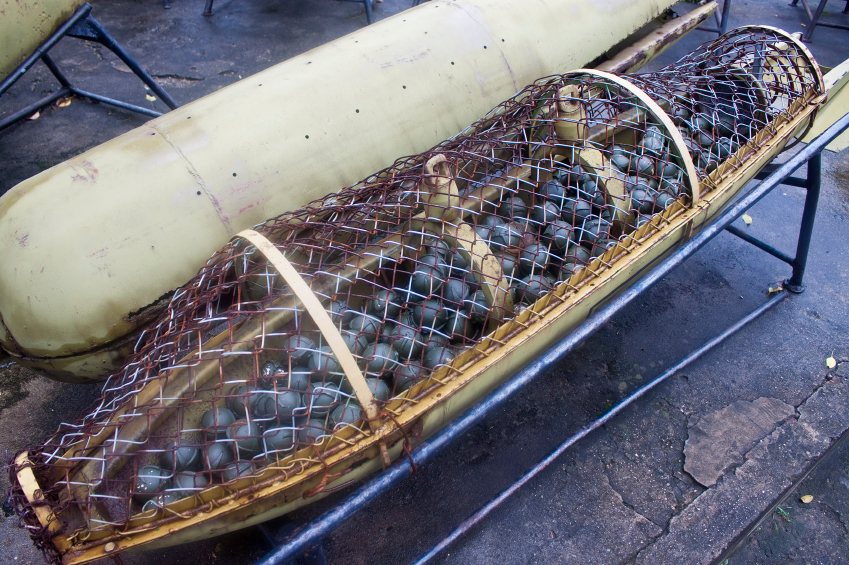New Zealand recognises that the use, misuse and/or irresponsible transfer of conventional weapons can lead directly to human rights abuses, breaches of international humanitarian law, death and suffering.
International arrangements
New Zealand is party to international arrangements that regulate the trade and transfer of arms, and international agreements that ban other types of conventional weapons such as anti-personnel mines and cluster munitions.
The Arms Trade Treaty
This agreement regulates international trade in conventional arms, from small arms (e.g. guns) light weapons (e.g. rockets and grenades) and battle tanks to warships and military aircraft. It came into force in December 2014.
The ATT requires State Parties to assess the risk that weapons or ammunition transfer might worsen conflict or be used to violate international humanitarian or human rights law.
New Zealand upholds and promotes implementation of the Arms Trade Treaty. As a first step, we developed an Arms Trade Treaty ‘Model Law', which helps Pacific states to translate the treaty commitments into their own legislation. The model legislation has also been used by other countries around the world, including in Africa and Latin America.
Read more about the Arms Trade Treaty(external link)
UN Programme of Action on Small Arms and Light Weapons
This is a non-binding agreement for states to combat the illicit trade in small arms and light weapons at all levels – national, regional, and international. The programme provides measures so states can develop standards and procedures to manage weapon stocks, and programmes to destroy surplus, collected, and confiscated stocks of weapons.
New Zealand submits voluntary reporting to the Programme every two years.
Find out more about the Programme of Action(external link)
Convention on Certain Conventional Weapons (CCW)
Also called the Inhumane Weapons Convention, the CCW entered into force in 1983. It aims to protect civilians from the effects of indiscriminate weapons used in armed conflict, and from unnecessary injury and suffering. New Zealand is bound by all CCW Protocols.
Find out more about the treaty and its latest news(external link)
Anti-Personnel Mine Ban Convention
New Zealand is a staunch supporter of the Anti-Personnel Mine Ban Convention (APMBC), also known as the Ottawa Convention or the Mine Ban Treaty. The Convention came into force in 1999. The APMBC prohibits the use, production, stockpiling and transfer of anti-personnel mines.
Find out more about the treaty and its latest news(external link)
Convention on Cluster Munitions (CCM)

Cluster munitions are weapons that consist of a container and various small explosive submunitions that saturate an area with explosive force. These munitions may be air-dropped or ground launched. The CCM prohibits the use, production, stockpiling and transfer of cluster munitions.
New Zealand is one of six states that initiated discussions which led to the CCM coming into existence in 2010. In 2008, we hosted one of the negotiating meetings in Wellington.
New Zealand was also the coordinator for National Implementation Measures under the CCM between 2011 and 2023. During this time, we produced model legislation to help small countries without a history of cluster munitions to develop their own legislation to implement the CCM.
Find out more about the CCM and its work.(external link)
International Assistance
The CCW (Protocol V), CCM, and APMBC all contain provisions for international assistance to support affected States Parties. New Zealand provides financial assistance through our international development cooperation programme, and technical assistance through the New Zealand Defence Force. This support includes victim assistance, mine clearance, capacity building, and education, with a particular focus on Asia and the Pacific.
Reporting
New Zealand reports on our implementation of the CCW, APMBC, and CCM each year. The reporting from New Zealand and other States Parties can be found on the relevant convention websites

